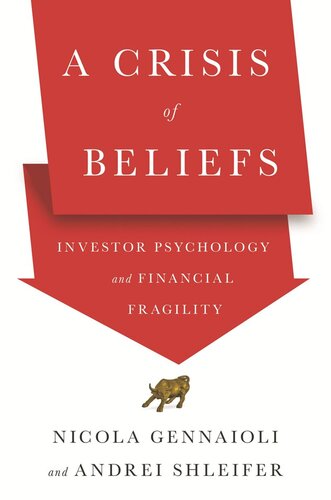

Most ebook files are in PDF format, so you can easily read them using various software such as Foxit Reader or directly on the Google Chrome browser.
Some ebook files are released by publishers in other formats such as .awz, .mobi, .epub, .fb2, etc. You may need to install specific software to read these formats on mobile/PC, such as Calibre.
Please read the tutorial at this link: https://ebookbell.com/faq
We offer FREE conversion to the popular formats you request; however, this may take some time. Therefore, right after payment, please email us, and we will try to provide the service as quickly as possible.
For some exceptional file formats or broken links (if any), please refrain from opening any disputes. Instead, email us first, and we will try to assist within a maximum of 6 hours.
EbookBell Team

0.0
0 reviewsHow investor expectations move markets and the economy
The collapse of Lehman Brothers in September 2008 caught markets and regulators by surprise. Although the government rushed to rescue other financial institutions from a similar fate after Lehman, it could not prevent the deepest recession in postwar history. A Crisis of Beliefs makes us rethink the financial crisis and the nature of economic risk. In this authoritative and comprehensive book, two of today’s most insightful economists reveal how our beliefs shape financial markets, lead to expansions of credit and leverage, and expose the economy to major risks.
Nicola Gennaioli and Andrei Shleifer carefully walk readers through the unraveling of Lehman Brothers and the ensuing meltdown of the US financial system, and then present new evidence to illustrate the destabilizing role played by the beliefs of home buyers, investors, and regulators. Using the latest research in psychology and behavioral economics, they present a new theory of belief formation that explains why the financial crisis came as such a shock to so many people—and how financial and economic instability persist.
A must-read for anyone seeking insights into financial markets, A Crisis of Beliefs shows how even the smartest market participants and regulators did not fully appreciate the extent of economic risk, and offers a new framework for understanding today’s unpredictable financial waters.